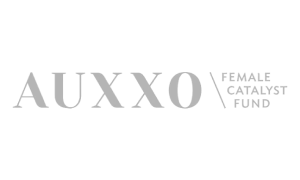Contents
International tax compliance can be a challenge, especially with regulations such as the Foreign Account Tax Compliance Act (FATCA) and Common Reporting Standards (CRS) coming into play. In order to better understand its intricacies and its effect on funds and investors, we had the pleasure of interviewing Dominic Briggs, Co-Founder and General Partner of Blockwall, to ask him about FATCA and CRS, and his experience with it.
Understanding the respective requirements of FATCA and CRS, and how they differ, is crucial for financial institutions. Fund managers, especially, need to consider whether they must comply with these regulations, as they may qualify as financial institutions under FATCA and/or CRS.
FATCA and CRS – breaking down the difference
FATCA (Foreign Account Tax Compliance Act):
FATCA is a U.S. federal law designed to ensure that U.S. taxpayers with foreign financial accounts report their assets to the Internal Revenue Service (IRS). Its focus is on non-U.S. financial institutions that have U.S. persons – defined to include primarily U.S. citizens and residents, as well as Green Card holders – as account holders. FATCA mandates that foreign financial institutions report information on U.S. account holders directly to the IRS. Unlike CRS, FATCA primarily involves one-way information exchange from foreign financial institutions to the IRS. FATCA applies in countries that have entered into bilateral FATCA implementation agreements with the United States, including Germany.
CRS (Common Reporting Standard):
CRS is an international standard developed by the Organisation for Economic Co-operation and Development (OECD). It mandates the reciprocal exchange of financial account information between participating countries. Like FATCA, CRS (as implemented in national law) requires so-called Reporting Financial Institutions to gather and report information on account holders to their local tax authorities, who then exchange this information with the countries of tax residency of those account holders. Unlike FATCA, however, CRS requires mutual exchange between participants, with the result that the number of multilateral CRS agreements far outstrips the number of bilateral FATCA agreements in place. CRS also requires financial institutions to gather sufficient information on account holders within 90 days of account opening. It also covers a broader range of types of financial accounts and focuses on identifying beneficial owners of accounts, aiming for comprehensive transparency.
Relevance and Recent Changes
FATCA and CRS are relevant for fund managers because they potentially qualify as covered “financial institutions” for purposes of FATCA and/or CRS, with the LPs being the “account holders”. As a result, such funds would be required to obtain information on their LPs at the inception of their investment (so-called “self-disclosure” or Selbstauskunft) and report annually on their LPs’ tax residency and holdings in the relevant funds.
Interview with Dominic Briggs
We had the pleasure to get together with Dominic and discuss the impact of FATCA on his fund operations. Continue reading to learn more about Blockwall's experience with the regulations and tips on how to stay compliant here!
bunch: FATCA and CRS have significant implications for the financial industry. As a General Partner (GP), how have these regulations most affected your work?
Dominic: The impact has been considerable. Since the inception of Blockwall, we've been laser-focused on diversifying our Limited Partner (LP) base, which ranges from high-net-worth individuals (HNWI) to demanding institutional investors across a dozen jurisdictions. The onboarding process has been particularly challenging in this regard due to the varied compliance requirements.
bunch: What do FATCA and CRS entail for a GP, and how are you dealing with the requirements of both?
Dominic: FATCA and CRS require us to ensure that we have the necessary information to report on our investors' tax residency and financial accounts. To manage this, we've always sought strong partners to help us navigate the regulatory and operational challenges of running a fund. Beyond compliance, we prioritise the LP experience to ensure it remains seamless and efficient.
bunch: Are investors involved in the process? How do they contribute or participate?
Dominic: Absolutely, investors are a crucial part of the process both pre close and post-close. They need to provide the required documentation and information to comply with FATCA and CRS regulations. We work closely with them to ensure all necessary details are collected promptly and accurately, minimising any potential disruptions.
bunch: What are the main challenges you face during the FATCA and CRS reporting season?
Dominic: One of the primary challenges is that investors tend to be unfamiliar with the intricacies of the FATCA and CRS reporting processes. It requires us to provide clear guidance and support to ensure they understand their responsibilities.
bunch: How does having good partners help in managing these challenges?
Dominic: Reliable partners on the admin side are indispensable in this process. They bring expertise and resources that help us streamline compliance tasks, mitigate risks, and ensure we stay ahead of regulatory changes. Their support allows us to focus on our core activities, such as managing investments and maintaining strong relationships with our LPs.
bunch: That’s insightful. Any final thoughts on navigating FATCA and CRS as a GP?
Dominic: It’s all about finding the right balance between compliance and maintaining a positive investor experience. With the right partners and systems in place, it’s possible to turn these regulatory requirements into a streamlined part of the onboarding process rather than a cumbersome hurdle.
Important Notes:
The relevant compliance deadline for funds and regulated SPVs is July 31, 2024. Filings under FATCA (according to the FATCA-USA-UmsV in Germany) and CRS (according to the FKAustG in Germany) for the reporting period 2023 in Germany must be submitted to and received in full by the German Federal Central Tax Office by that deadline.
If you need assistance here and want to power your fund compliance on bunch, please reach out to sales@bunch.capital!
The best already build on bunch





























.webp)
.webp)
